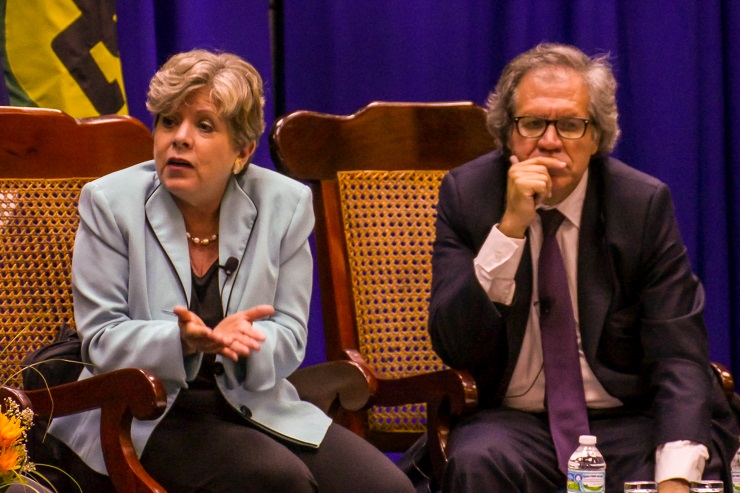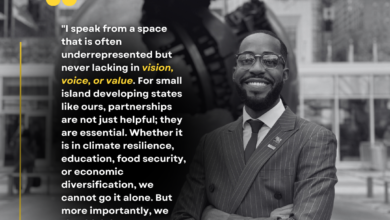BRIDGETOWN, Barbados, Friday July 3, 2015– Caribbean leaders appear to be giving serious consideration to making a proposal requesting the gradual write-off of billions of dollars in external debt.
The issue was raised by Executive Secretary of the UN Economic Commission for Latin America and the Caribbean (ECLAC), Alicia Bárcena at a high-level meeting this morning that preceded yesterday’s official opening of the 36th regular meeting of the Conference of Heads of Government of CARICOM.
She pointed out that 40 per cent of the Caribbean’s US$46 billion debt is to multinational agencies, with 14 per cent being bilateral.
Of that amount, she said, US$30 billion was accumulated between 1990 and 2014 as a result of natural disasters.
She described the situation facing regional states are serious, explaining that five Caribbean countries are among the most indebted in the world.
Bárcena said the problems are compounded by the vulnerabilities of Caribbean economies that are already facing a decline in foreign direct investment.
“Antigua and Barbuda, Barbados, Grenada, Jamaica, St Kitts and Nevis are the top five in the Caribbean,” she said. “Nobody talks about them. We all hear about Belize. Of course it represents one per cent of the global debt so we are not a systematic problem.”
The ECLAC official said “the time is ripe” for CARICOM states, along with the Caribbean Development Bank, the International Monetary Fund and the World Bank to hammer out an agreement on a proposal for debt relief.
“The debt service payments should go to a resilience fund that can probably be managed by the Caribbean Development Bank. The resilience fund should be used . . . for infrastructure adaptation, sea defence.
“Another fund that should be very important is . . . an external micro economic fund. That fund is for external shocks. Who should support that external micro economic fund is the larger economies of Latin America, the Brazil and Columbia,” she said.
In his intervention, President of the Caribbean Development Bank Dr. Warren Smith said Caribbean leaders need to show they are serious about change by making hard decisions.
“Even as we make a case for that debt relief we need to demonstrate to those with whom we are negotiating that we are prepared to take the tough decisions to do the right thing,” he told the meeting.
“We need to change the structure of our economies. We can’t continue to do what we have done in the past and expect different results.”
The discussion was attended by UN Secretary-General Ban Ki-moon, Secretary-General of the Organisation of American States Luis Almagro Lemes, and Secretary-General of the Commonwealth Kamalesh Sharma, among other officials.





